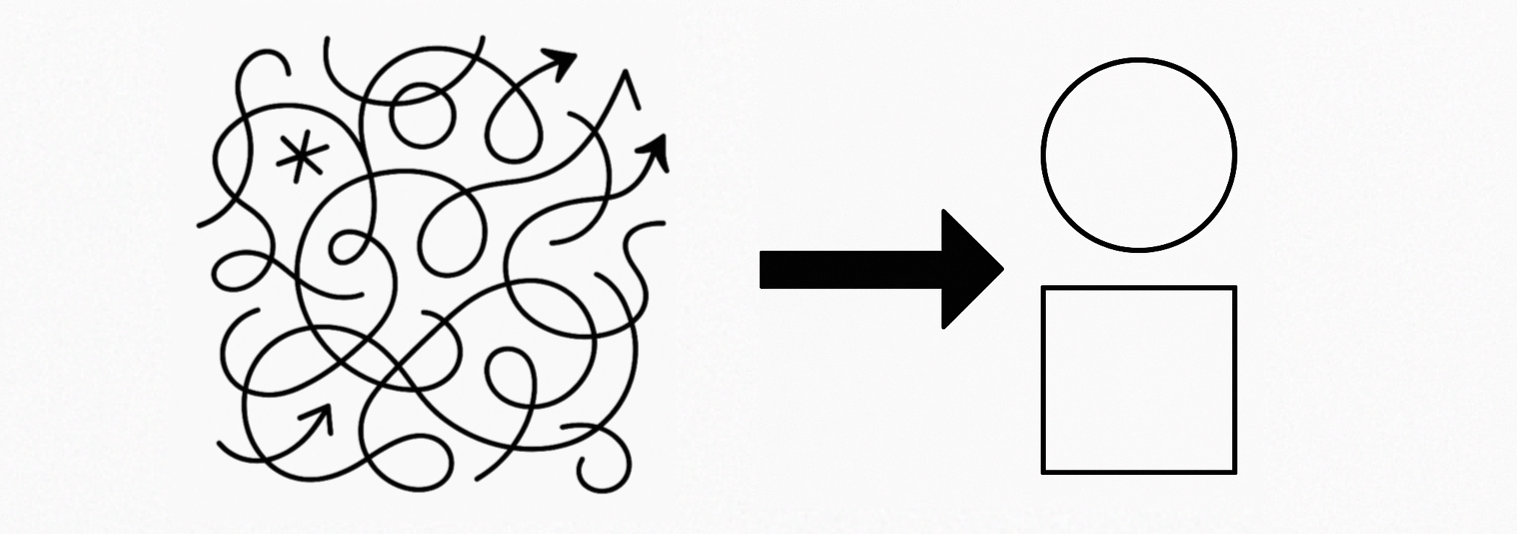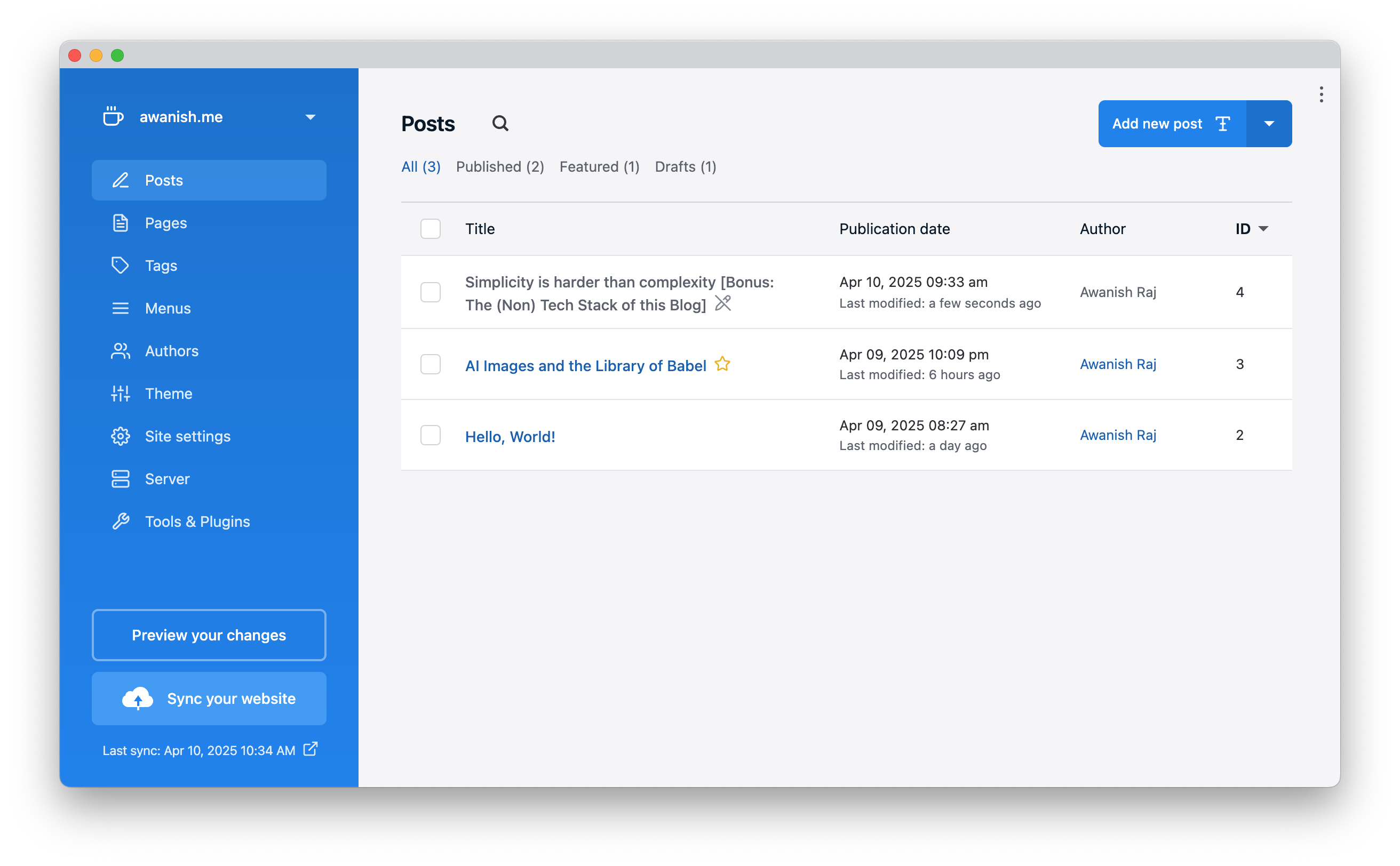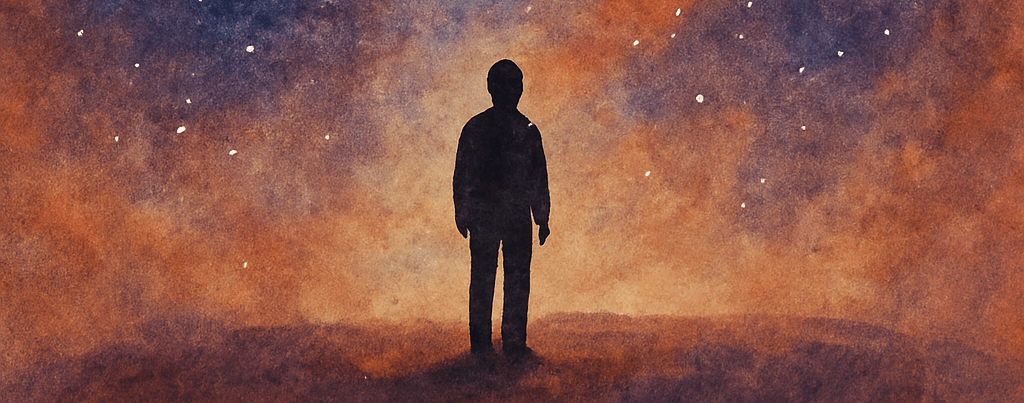
Simplicity is Harder than Complexity [Bonus: The (Non) Tech Stack of this Blog]
As a long-time programmer, the thought of hosting a personal blog isn’t scary at all. After all, I build a complex wealth management platform for a living. But the journey to get this site up and running has been a short yet solid re-affirmation of some of my philosophies on simplicity and complexity.
Simplicity is harder than complexity!
As we grow up, we see the world around us become more sophisticated and complex. An over-designed presentation or a bedazzled project report usually earns claps and cheers. So it’s no wonder we equate complexity with progress — and think that’s what everyone should strive for. But is it really?
One of my earliest memories of anti-complexity being appreciated was during a presentation attended by Prof. Ashok Jhunjhunwala of IIT Madras. I was lucky to be in the audience. The presenter did her best to deliver a visually striking presentation. But what the professor said at the end shocked almost everyone in the room. He said, “All is well, but in the future, I want your presentation to be black and white, and just simple bullet points.” That was definitely a contrarian opinion to my 20-something-year-old self. But he went on to explain why — the fanciness of the presentation was a distraction, and the presentation should be about the topic, not the makeup. That stuck with me.
It’s been a decade of building things (robots, apps, websites, servers, etc.) since then. I’ve been in full control of the decisions behind them — and also responsible when they don’t work well. Over time, that responsibility has helped shape my thinking about how to build things. Tech, especially software, is always iterative. It gives you opportunities to build, maintain, destroy, and rebuild — Trimurti: Brahma, Vishnu, Mahesh. And with each iteration, I’ve developed a compass that guides me toward the next best version. What I’m about to say comes from that lived experience: Simplicity — not complexity — is the motto.
Let me explain this with the second law of thermodynamics: In the universe, entropy (disorder/chaos) is always increasing. But life somehow manages to decrease local entropy and create order. The higher the life form, the more it reduces chaos. In that sense, simplicity is the purest expression of life — creating more order in chaos. So it makes sense that simplicity is harder to achieve. But why is that?
Simplicity is hard because the choices you need to make are hard.
If you didn’t have to make hard choices, you wouldn’t be cutting out chaos. Building something complex is easy — it’s equivalent to spraying and praying. But to make complexity simple, you need to hit the bullseye. The only difference is: most of the time, you can’t even see the target.
So what does this have to do with the tech stack?
Good question. When I started researching the best way to build and host my site, I was thrown into a myriad of options — Jekyll with GH Pages, Astro with Netlify CMS, Ghost blog with a database, and tons of others. I tried every option because I wanted everything they had to offer. But after juggling npm installs, version conflicts, and deployment subscriptions, I realized I was giving in to entropy.
As usual, I went back to my instincts: What do I really want to achieve?
I want to write content and publish it. That’s it. No bells and whistles.
That search for simplicity led me to Publii.

Publii is a macOS app that connects directly to your GitHub repo. Once set up, you can write and publish straight from the app — no need to mess with configs or versions. It’s clear that the creators knew exactly what they were doing: removing chaos.
If you’re planning to start a personal site or blog, Publii should be a no-brainer. I love the experience of simply being able to focus on what I really want to do — just write!
TL;DR: I chose simplicity over complexity while setting up this blog. After trying many options, Publii stood out as the cleanest way to write and publish — no noise, just writing.
